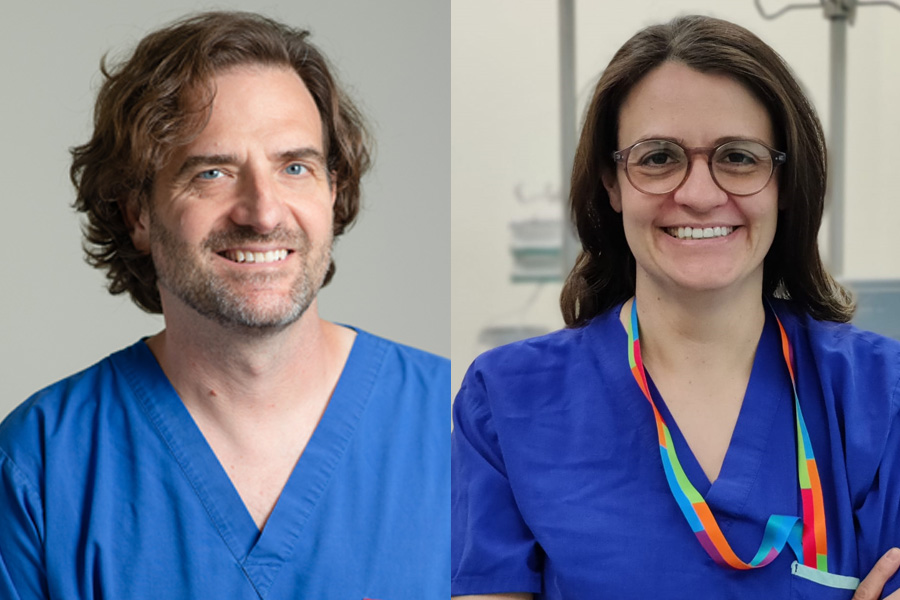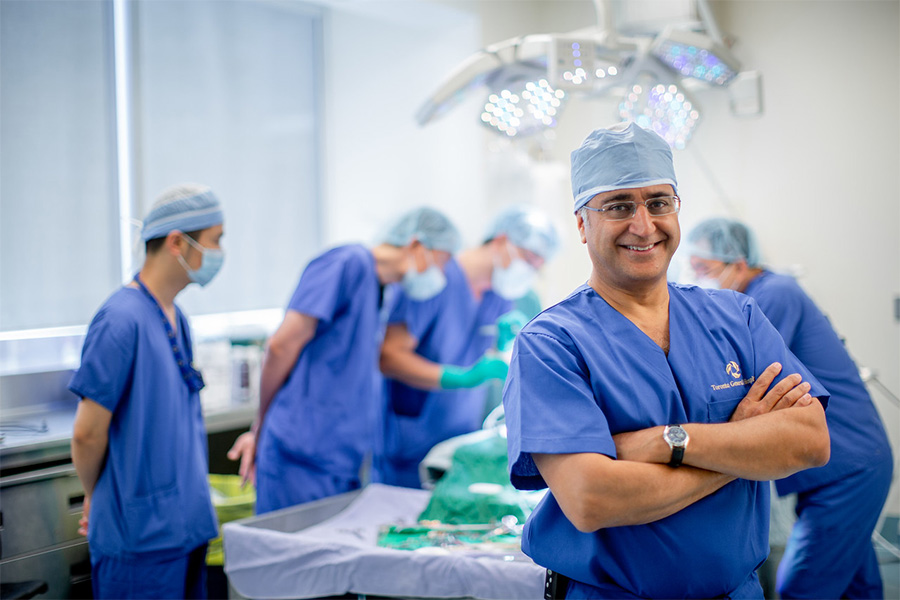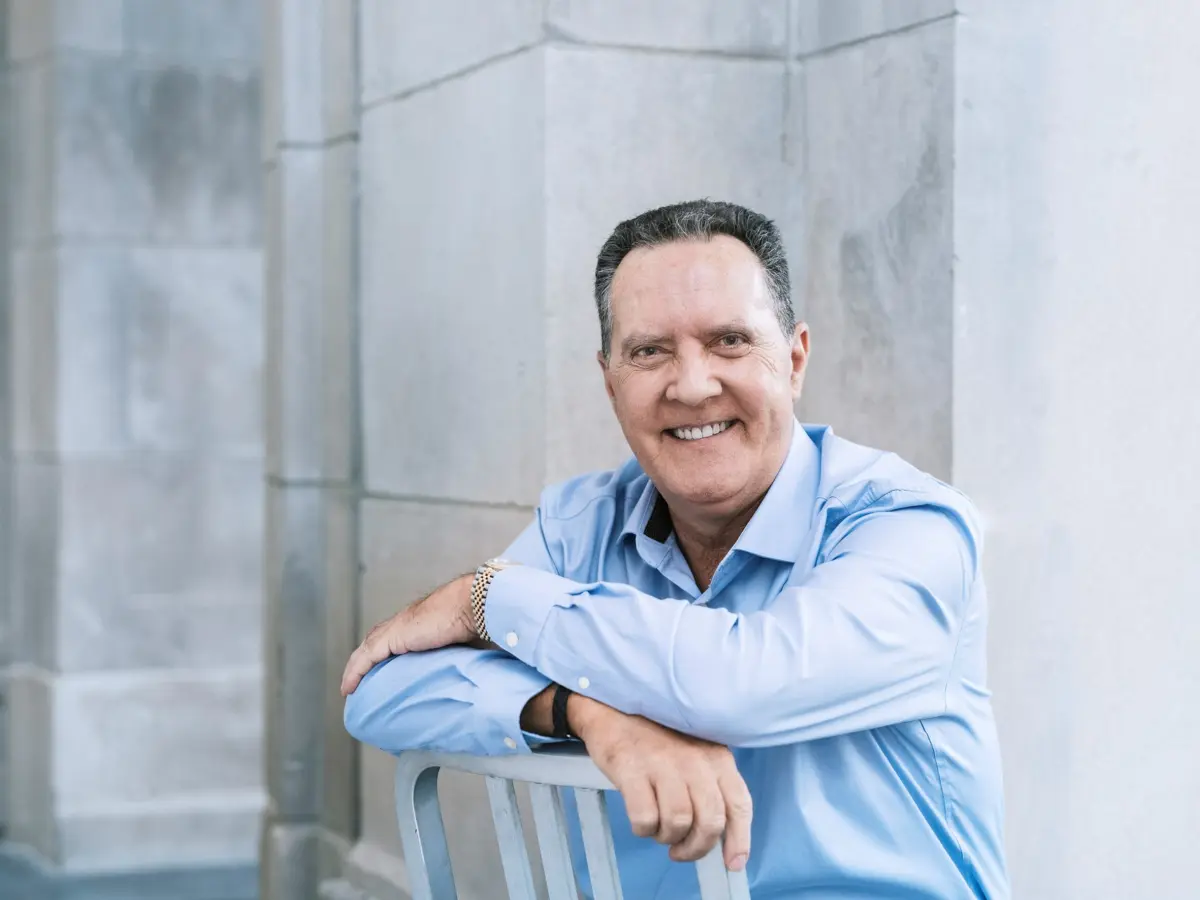
New research by UHN scientists shows a deceased donor pancreas organ can safely be sustained outside the body for up to four hours when put on an ex vivo perfusion system. That’s longer than any other study to date.
This method of sustaining donor organs outside the body – “ex vivo” – allows for them to be repaired and treated so that they may become suitable for transplant.
The results are a crucial step towards demonstrating ex vivo perfusion is a safe and viable method to recondition and repair a donor pancreas for transplant or islet cell isolation.
The study, led by principal investigator Dr. Trevor Reichman, Surgical Director of the Pancreas and Islet Transplant Program at UHN’s Ajmera Transplant Centre and a surgeon in UHN’s Sprott Department of Surgery, tested seven donor pancreases that did not meet the threshold for transplant.
The purpose of the study was to determine the feasibility and safety of ex vivo to sustain and treat donor pancreas organs.
The study showed ex vivo perfusion kept all except one donor pancreas viable for four hours with no deterioration. One pancreas had to be discarded because of technical issues (heating pump failure) during the perfusion, which did not allow for appropriate data collection.
“This study proved for the first time that discarded pancreas grafts could be perfused successfully outside of the human body, which is a major step closer to bringing this technology to the clinic,” Dr. Reichman says. “This goes a long way to reaching our ultimate goal of increasing the donor pool and improving outcomes for patients in need of a pancreas transplant.”
UHN is a world leader in transplanting organs treated via ex vivo perfusion, with research and clinical translation led by Dr. Shaf Keshavjee, Director of the Toronto Lung Transplant Program and Latner Thoracic Surgery Research Laboratories, and a surgeon in UHN’s Sprott Department of Surgery.
Dr. Keshavjee’s pioneering research into the viability of ex vivo started in the late 1990s with the development of the Toronto Ex Vivo Lung Perfusion (EVLP) system to treat damaged lungs and make them viable for transplant.

In 2008, Dr. Keshavjee, who is also Chief of Clinical Innovation at UHN and the Scientific Director of the Techna Institute, led the team that performed the world’s first successful human transplant of an ex vivo perfused donor lung. The Toronto EVLP system has since helped double the availability of lungs for transplant, and today, ex vivo research at UHN has expanded to include kidney, liver, heart, and now pancreas.
“When we developed the strategy of ex vivo evaluation and treatment of donor lungs for transplantation, we realized that this work would open the door for opportunities to improve the outcomes for all organ transplants,” explains Dr. Keshavjee. “Dr Reichman’s work has just opened that door for the pancreas.
“The pancreas is one of the more challenging organs to transplant and his work brings hope to many patients suffering from diabetes and pancreatic failure.”
Pancreas transplantation can result in complete independence from insulin injections for people living with Type 1 diabetes in the majority of cases. Another treatment option is islet transplantation which can also result in insulin independence and glucose stability. Islets are the clusters of cells in the pancreas that make insulin.
But the barrier to transplant is the scarcity of viable deceased donor organs in Canada. In 2022, less than 100 pancreas transplants were performed across the country, with nearly double that number of patients on the waiting list.
Successfully adapting the Toronto EVLP to treat a donor pancreas would allow for the treatment of previously rejected pancreas organs, thus increasing the potential supply of the deceased donor base.
“In the realm of ex vivo organ perfusion, pancreas is still in its early stages compared to other organs,” says study says lead author Dr Catherine Parmentier, a research fellow at UHN’s Ajmera Transplant Centre. “However, the recent accomplishments in this field are incredibly promising, bringing us closer to potential clinical trials.
“The focus of future research will be on extending the duration of perfusion and exploring organ repair techniques. We are on the cusp of transformative developments in pancreas transplantation and diabetes treatment.”


